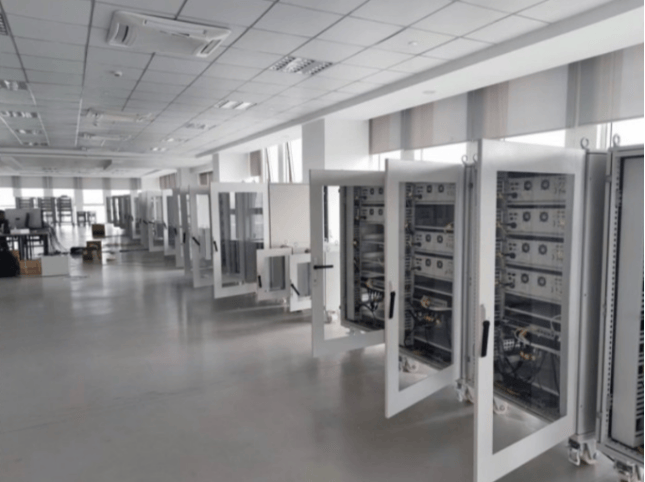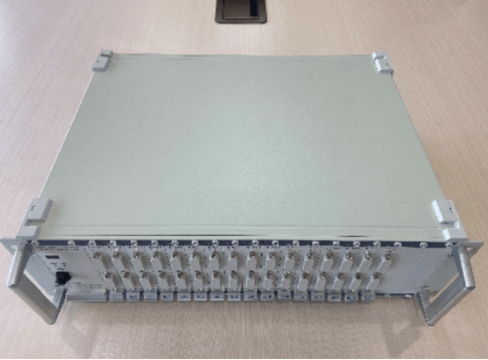Aircraft Full-Scale Static & Fatigue Structure Test System
October 2023 – Q1 2024 · China Aircraft Strength Research Institute
Project Overview
Our company was awarded the contract to develop and deliver a 16,000-channel SE-98 Dynamic Stress-Strain Testing and Analysis System for full-scale aircraft structural testing at the China Aircraft Strength Research Institute (CASI). The system will support both static strength and fatigue testing of complete airframe structures.
System Configuration
Modular Architecture:
8 independent subsystems (2,000 channels each) for parallel testing
Supports simultaneous multi-zone data acquisition (wings, fuselage, empennage, etc.)
Measurement Capabilities:
Strain gauges (10,000+ channels) for stress distribution mapping
Displacement sensors (LVDT/Laser) for deformation monitoring
Load cells (500+ channels) for applied force measurement
Thermocouples (1,000+ channels) for thermal-structural coupling analysis
Key Features:
Real-time processing at 100Hz full-channel sampling rate
Distributed DAQ architecture with fiber-optic synchronization
Automated fatigue cycle counting (rainflow algorithm integration)
Testing Applications
1. Static Strength Tests
Ultimate load validation (150% design limit load)
Failure mode characterization
Stiffness distribution analysis
2. Fatigue Tests
Simulated 50,000+ flight cycles
Crack initiation/propagation monitoring
Residual strength assessment
3. Multi-Physics Correlation
Combined mechanical-thermal loading
Comparison with FEM predictions
Technical Advantages
✔ Scalability – Largest channel count in domestic aviation testing
✔ Flexibility – Reconfigurable for different aircraft types (fighters, commercial, UAVs)
✔ Reliability – MIL-STD-810 environmental compliance
✔ Digital Twin Integration – Direct data streaming to CAE platforms
Delivery Milestones
Q4 2023: Subsystem prototype verification
Q1 2024: Factory acceptance testing
Q2 2024: On-site commissioning at CASI
Conclusion
The SE-98 system represents a significant advancement in full-scale aircraft structural testing, providing precise, high-density data for both static and fatigue assessments. By enabling comprehensive stress, displacement, and thermal monitoring across large airframes, it supports next-generation aircraft development, optimizes design validation, and enhances safety and reliability. This milestone also demonstrates China’s growing capability in independent aviation testing and structural certification.
This system represents a breakthrough in China's independent aviation testing capabilities, enabling next-generation aircraft development with complete structural validation data.
Note: The SE-98 system architecture was jointly developed with Northwestern Polytechnical University to meet CAST's stringent requirements for composite-heavy airframe testing.


